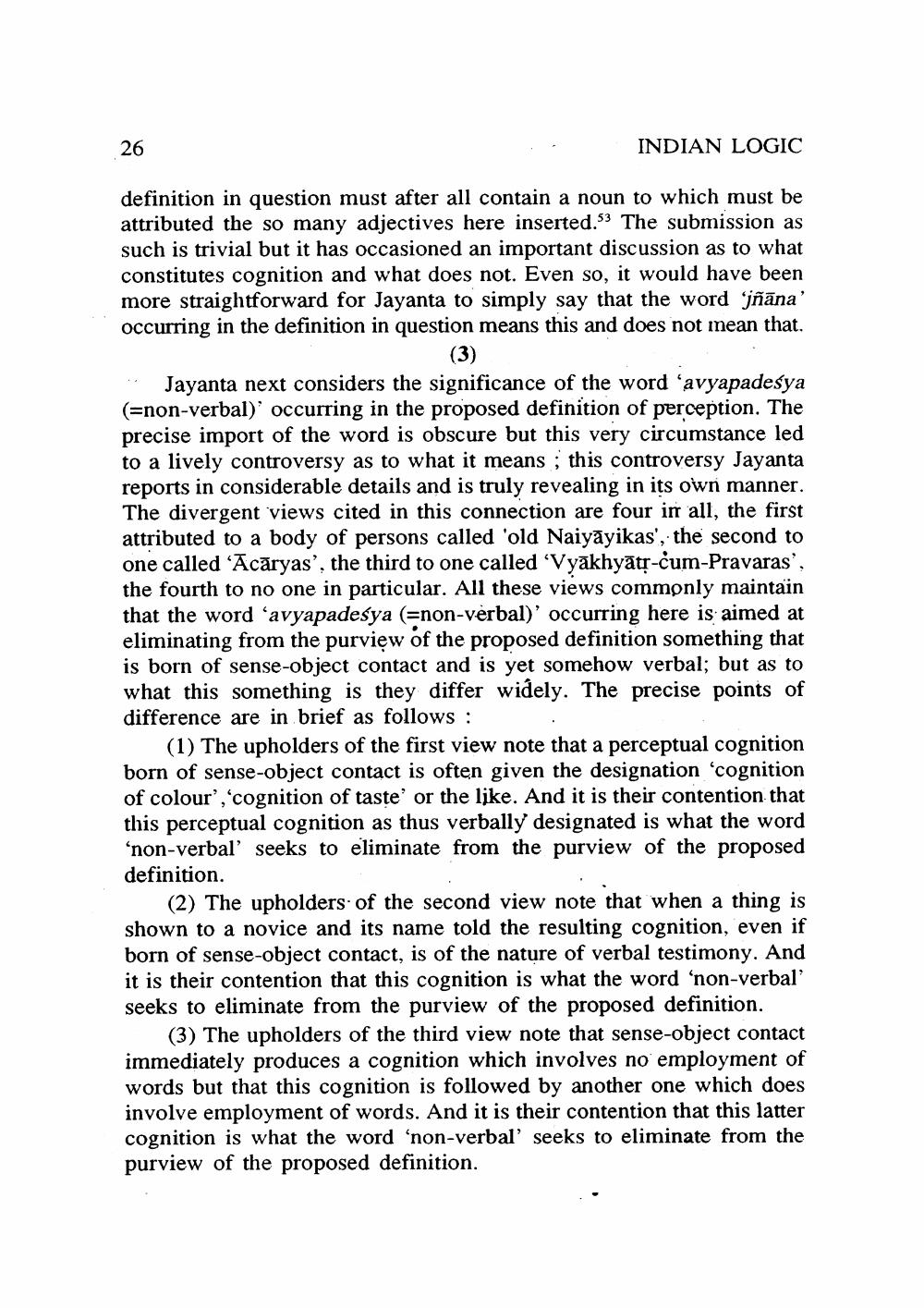________________
26
INDIAN LOGIC
definition in question must after all contain a noun to which must be attributed the so many adjectives here inserted.53 The submission as such is trivial but it has occasioned an important discussion as to what constitutes cognition and what does not. Even so, it would have been more straightforward for Jayanta to simply say that the word 'jñāna' occurring in the definition in question means this and does not mean that.
(3)
** Jayanta next considers the significance of the word 'avyapadesya (=non-verbal)' occurring in the proposed definition of perception. The precise import of the word is obscure but this very circumstance led to a lively controversy as to what it means ; this controversy Jayanta reports in considerable details and is truly revealing in its own manner. The divergent views cited in this connection are four in all, the first attributed to a body of persons called 'old Naiyāyikas', the second to one called 'Acāryas', the third to one called 'Vyākhyātr-cum-Pravaras', the fourth to no one in particular. All these views commonly maintain that the word 'avyapadesya (=non-verbal)' occurring here is aimed at eliminating from the purview of the proposed definition something that is born of sense-object contact and is yet somehow verbal; but as to what this something is they differ widely. The precise points of difference are in brief as follows:
(1) The upholders of the first view note that a perceptual cognition born of sense-object contact is often given the designation 'cognition of colour', 'cognition of taste' or the like. And it is their contention that this perceptual cognition as thus verbally designated is what the word 'non-verbal' seeks to eliminate from the purview of the proposed definition.
(2) The upholders of the second view note that when a thing is shown to a novice and its name told the resulting cognition, even if born of sense-object contact, is of the nature of verbal testimony. And it is their contention that this cognition is what the word 'non-verbal seeks to eliminate from the purview of the proposed definition.
(3) The upholders of the third view note that sense-object contact immediately produces a cognition which involves no employment of words but that this cognition is followed by another one which does involve employment of words. And it is their contention that this latter cognition is what the word 'non-verbal' seeks to eliminate from the purview of the proposed definition.




